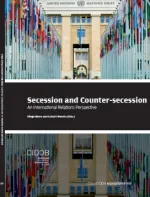The EU’s policies towards contested states

Contested states are the product of partially successful strategies. National independence movements may prove capable of establishing effective control over a certain territory and its population, but a lack of full international recognition indicates that the counter-secession policies of the government confronted with the breakaway have likewise been successful to some extent. This results in a fragile equilibrium that the European Union’s security policies need to address. In the case of Europe, there is no question of a military solution to any of these conflicts, but nor are negotiations making sufficient progress to end the stalemate. Among the various cases of unrecognised entities the EU is dealing with, one – Northern Cyprus – is located on EU territory. The EU is also mediating between a candidate country – Serbia – and a potential candidate country – Kosovo, whose statehood is contested, including by some EU member states. In addition, the EU has to develop a policy towards a number of disputes involving contested states in its eastern neighbourhood: these are the conflicts over the status of Transnistria in Moldova, South Ossetia and Abkhazia in Georgia, Nagorno-Karabakh in Azerbaijan, and Donbass and Lugansk in Ukraine. Russia is deeply involved in this last group through its support for these contested states. Moreover the EU also has to deal with entities that are located farther away, but that are nonetheless also crucial for its global security policies, such as Palestine and Taiwan. The following paper will describe some crucial characteristics of the EU’s policies on conflicts involving contested states and will analyse some of the main problems it is grappling with.